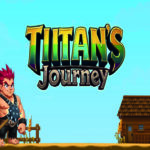Blockchain Beyond Finance: New Applications in Software
Blockchain technology has long been synonymous with cryptocurrency and financial transactions. However, its transformative potential extends far beyond the realm of finance, catalyzing innovation across multiple software domains. The decentralized, immutable, and transparent nature of blockchain is reshaping industries by offering new paradigms in data security, trust management, and process automation. As businesses seek to leverage blockchain’s unique capabilities, it is imperative to explore its evolving applications beyond traditional financial use cases.
Understanding Blockchain’s Core Advantages for Software Applications
At the heart of blockchain lies a distributed ledger technology that ensures data integrity through cryptographic security and consensus mechanisms. Unlike centralized databases, blockchain stores information across a network of nodes, creating an immutable record that cannot be altered without collective agreement. This architecture provides several critical advantages for software applications:
- Decentralization: Removes single points of failure and enhances resilience.
- Transparency: Enables all participants to verify transactions independently.
- Security: Utilizes cryptography to prevent tampering and unauthorized access.
- Trustlessness: Facilitates interactions without reliance on intermediaries.
These features empower software systems to innovate new models of collaboration, governance, and data management previously unattainable in centralized environments.
Blockchain in Supply Chain Management: Ensuring Transparency and Traceability
One of the most impactful non-financial applications of blockchain is in supply chain software. Global supply chains are complex, involving multiple stakeholders, each maintaining disparate data silos. Blockchain creates a unified, tamper-proof ledger that tracks goods from origin to end consumer.
By integrating blockchain into supply chain management software, organizations can:
- Authenticate product provenance with verifiable timestamps and digital certificates.
- Detect and prevent fraud, counterfeit products, and unauthorized modifications.
- Enhance real-time visibility into inventory levels and shipment status.
- Automate compliance reporting and audits through smart contracts.
The result is a highly transparent, accountable, and efficient supply chain ecosystem, minimizing disputes and optimizing operations.
Decentralized Identity Management: Empowering Users and Enhancing Privacy
Traditional identity systems are vulnerable to breaches, data leaks, and identity theft due to centralized storage of sensitive information. Blockchain-powered decentralized identity (DID) management software shifts control back to users by enabling self-sovereign identity.
Key benefits include:
- Users control their digital identities through cryptographic keys without reliance on centralized authorities.
- Selective disclosure of identity attributes reduces exposure of unnecessary personal data.
- Immutable audit trails document all identity interactions, enhancing trust.
- Seamless integration with authentication systems, enhancing security and user experience.
This approach has profound implications for sectors like healthcare, government services, and financial services where privacy and compliance are paramount.
Smart Contracts: Automating Agreements and Workflows in Software
Smart contracts are self-executing code deployed on blockchain networks that automatically enforce the terms of agreements once predefined conditions are met. This capability is revolutionizing software applications involving contracts, payments, and workflows.
Applications include:
- LegalTech platforms that reduce manual contract review and increase enforceability.
- Supply chain automation where smart contracts trigger payments or shipments upon delivery confirmation.
- Real estate transactions automating escrow, title transfers, and rental agreements.
- Decentralized autonomous organizations (DAOs) that utilize smart contracts for governance, voting, and resource allocation.
By embedding trust and automation, smart contracts dramatically reduce friction, errors, and delays in multi-party business processes.
Blockchain for Data Integrity and Auditability in Enterprise Software
Maintaining accurate, verifiable records is essential in sectors such as healthcare, logistics, and public administration. Blockchain’s immutable ledger provides a foundation for software systems focused on data integrity and compliance.
Examples include:
- Medical record management systems that log patient history and treatments securely.
- Regulatory reporting platforms with verifiable, time-stamped audit trails.
- Intellectual property management software tracking creation and ownership of digital assets.
- Voting systems guaranteeing transparency and preventing tampering or fraud.
Blockchain enhances trustworthiness by allowing stakeholders to independently verify data authenticity without compromising privacy.
Tokenization of Assets: Expanding Software Ecosystems
Beyond digital currencies, blockchain enables the tokenization of physical and digital assets. Tokenization converts ownership rights into blockchain-based tokens, facilitating fractional ownership, trading, and liquidity.
This innovation impacts software in domains such as:
- Real estate platforms offering tokenized property shares.
- Art and collectibles marketplaces enabling secure digital provenance.
- Intellectual property management, where royalties and licensing are tracked via tokens.
- Gaming ecosystems where in-game assets are tokenized, enhancing player ownership and trade.
Tokenization fosters new business models, economic incentives, and software-driven marketplaces.
Blockchain in Internet of Things (IoT): Securing and Scaling Connected Devices
The explosive growth of IoT devices presents significant challenges in security, data integrity, and scalability. Blockchain offers decentralized architectures to authenticate devices, manage data, and coordinate actions autonomously.
Software solutions integrating blockchain and IoT provide:
- Secure device identity management resistant to spoofing or hacking.
- Immutable records of sensor data ensuring tamper-proof analytics.
- Decentralized peer-to-peer communication networks reducing reliance on central hubs.
- Automated smart contract-based coordination for autonomous IoT workflows.
These capabilities strengthen IoT ecosystems, enabling scalable, secure, and reliable connected environments.
Challenges in Adopting Blockchain for Software Applications
While blockchain offers transformative potential, several challenges must be addressed for widespread adoption:
- Scalability: Public blockchains face throughput limitations affecting transaction speeds.
- Interoperability: Fragmented blockchain networks require standards for seamless integration.
- Energy Consumption: Some consensus mechanisms like Proof-of-Work consume significant power.
- Regulatory Uncertainty: Varying legal frameworks across jurisdictions pose compliance risks.
- Development Complexity: Blockchain integration demands specialized skills and new design paradigms.
Successful software projects balance these challenges by choosing appropriate blockchain types (public, private, or consortium) and leveraging hybrid solutions combining traditional databases and blockchain.
Emerging Trends: Blockchain Integration with AI and Cloud Computing
The future of blockchain in software is marked by convergence with other cutting-edge technologies:
- Artificial Intelligence (AI) enhances smart contract automation, fraud detection, and predictive analytics on blockchain data.
- Cloud computing enables scalable blockchain-as-a-service (BaaS) platforms, simplifying deployment and management.
- Layer 2 solutions and sidechains improve scalability and reduce transaction costs.
- Cross-chain interoperability protocols enable asset and data exchange across different blockchains.
These trends drive more practical, accessible, and powerful blockchain software applications.
Conclusion: Unlocking New Software Frontiers with Blockchain
Blockchain technology’s disruption extends well beyond financial services, creating unprecedented opportunities to redefine trust, transparency, and automation in software systems. By harnessing blockchain for supply chain transparency, identity management, smart contracts, data integrity, tokenization, and IoT security, organizations can unlock new value streams, improve efficiency, and build resilient digital ecosystems.
To succeed in this evolving landscape, businesses must adopt strategic, informed approaches to blockchain integration—leveraging its strengths while managing inherent challenges. The continued maturation of blockchain technology, combined with advances in AI and cloud, will solidify its role as a cornerstone of next-generation software innovation.
Embracing blockchain beyond finance equips enterprises to thrive in a decentralized future, fostering collaboration, accountability, and unprecedented digital trust.






















